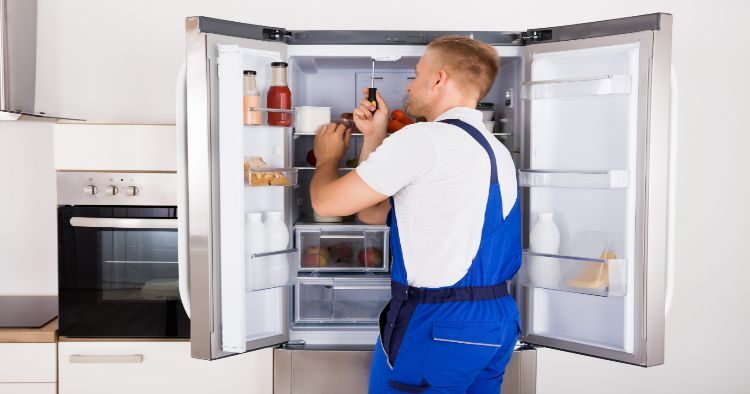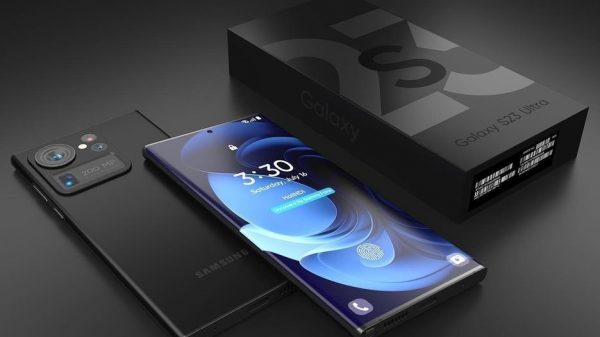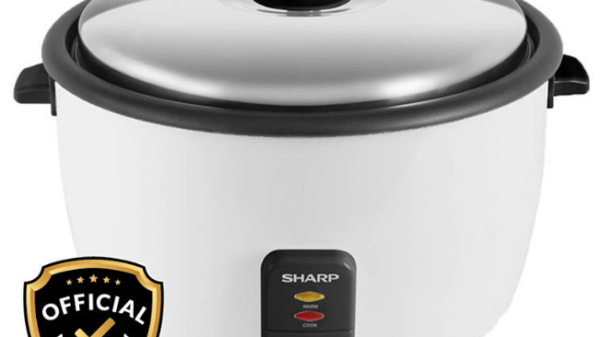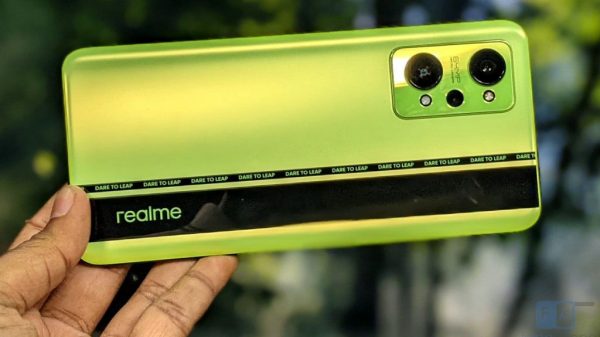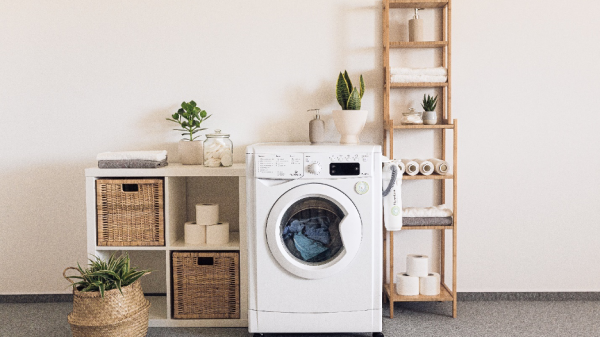Ah, the refrigerator—the unsung hero of our kitchens. From keeping our food fresh to chilling our drinks, this trusty appliance works tirelessly day in and day out. But what happens when it starts acting up? Don’t panic! In this troubleshooting guide, we’ll explore some of the most common refrigerator problems and provide easy solutions to get your fridge back in tip-top shape.
1. Refrigerator Not Cooling Properly
Is Your Fridge Feeling Lukewarm?
If your refrigerator is not cooling as it should, the first thing to check is the temperature settings. Make sure the thermostat is set to the appropriate cooling level. Also, inspect the vents inside the fridge to ensure they are not blocked by food items.
Dirty Condenser Coils
Dusty and dirty condenser coils can hinder proper cooling. Locate the coils at the back or bottom of your fridge and clean them gently with a vacuum cleaner or a brush. Regular maintenance of these coils can significantly improve cooling efficiency.
Faulty Door Gaskets
Damaged or worn-out door gaskets can allow warm air to seep into the refrigerator. Check the rubber seals around the doors for any signs of wear and tear. If needed, replace the gaskets to create a tight seal.
2. Excessive Frost Buildup in the Freezer
The Frost Monster Attacks
If your freezer is turning into an icy tundra, it’s likely due to a malfunctioning defrost system. Check the defrost timer, thermostat, and heater for any issues. A faulty defrost system can lead to frost buildup, compromising the freezer’s efficiency.
Door Seal Problems
An improperly sealed freezer door can cause warm air to enter, leading to frost accumulation. Make sure the freezer door is closing tightly and replace the gaskets if necessary.
3. Strange Noises Coming from the Fridge
Symphony of Sounds
Is your refrigerator suddenly serenading you with strange noises? It might be due to various reasons:
Normal Operation Sounds :
Some noises, like humming or gentle buzzing, are normal during the fridge’s operation. These sounds are usually a sign that the compressor or fans are running smoothly.
Evaporator Fan Issues
If you hear loud, unusual noises, it could be a problem with the evaporator fan. Check for any obstructions and consider replacing the fan if the noise persists.
Damaged Condenser Fan
A damaged or worn-out condenser fan can also cause noise. Inspect the fan for any visible issues and replace it if needed.
4. Leaking Water
Water Woes
Discovering a pool of water under your refrigerator is never a pleasant surprise. Here’s what you can do:
Clogged Defrost Drain
A clogged defrost drain can cause water to leak onto the floor. To fix this, locate the drain at the back of the fridge, and carefully clear any debris.
Faulty Water Supply Line
If your refrigerator has a water dispenser or ice maker, a faulty water supply line could be the culprit. Inspect the line for any leaks or damages and replace it if necessary.
5. Refrigerator Not Dispensing Ice or Water
No Refreshing Drinks
When your fridge refuses to dispense ice or water, it’s time to play detective:
Frozen Water Line
A frozen water line can block the flow of water. Check the water supply line for ice buildup and defrost it if needed.
Faulty Water Inlet Valve
A malfunctioning water inlet valve can disrupt the water flow. Test the valve for continuity, and if it fails, consider replacing it.
6. Fridge Cycling Too Often
Fridge on a Roller Coaster
If your refrigerator seems to be turning on and off too frequently, it could indicate an issue:
Overloading
An overloaded fridge can cause it to cycle more often. Ensure proper airflow by not over-packing the fridge with food.
Dirty Condenser Coils
As mentioned earlier, dirty condenser coils can lead to cooling inefficiencies. Regularly clean the coils to prevent the fridge from cycling excessively.
7. Fridge Too Warm, Freezer Too Cold
A Temperature Tug of War
If your freezer feels like the Arctic while your fridge feels like a sauna, a few potential causes include:
Blocked Air Vents
Check the vents between the freezer and fridge compartments for any obstructions. Proper airflow is essential for maintaining consistent temperatures.
Damaged Damper Control
The damper control regulates airflow between the freezer and fridge. If it’s damaged or malfunctioning, the temperature balance could be affected.
8. Ice Maker Not Producing Ice
If your ice maker is not doing its job, let’s troubleshoot:
Ice Maker Switch
Ensure that the ice maker switch is turned on and the water supply line is connected and functioning correctly.
Clogged Water Filter
A clogged water filter can hinder ice production. Replace the water filter regularly to maintain ice-making efficiency.
9. Fridge Smells Bad
The Fridge Odor Mystery
When your refrigerator starts smelling foul, it’s time to be a smell detective:
Spoiled Food
The most common cause of bad smells is spoiled or expired food. Regularly clean out your fridge and discard old items.
Cleaning Regimen
Regularly clean the interior of your refrigerator with a mixture of baking soda and water to eliminate odors.
10. Fridge Not Running at All
Complete Silence
If your refrigerator is eerily quiet and not running, there are a few things to check:
Power Supply
Ensure that the refrigerator is properly plugged in and the power outlet is working.
Defective Thermostat
A faulty thermostat can prevent the refrigerator from turning on. Test the thermostat for continuity and replace it if necessary.
Your refrigerator is an essential appliance that needs proper care and attention. By identifying and troubleshooting common problems, you can keep your fridge running smoothly and efficiently. If you encounter any issues beyond your expertise, don’t hesitate to seek professional help. For reliable refrigerator solutions, remember to reach out to Pickaboo, a trusted provider for all your cooling needs. Contact them today to find the perfect solution for your refrigerator woes.
FAQs
- Q: Why is my refrigerator running constantly?
A: A constantly running refrigerator could be due to dirty condenser coils, a faulty thermostat, or an overpacked fridge.
- Q: How often should I clean my refrigerator’s condenser coils?
A: Clean the condenser coils at least twice a year to maintain optimal cooling efficiency.
- Q: Can I use a hairdryer to defrost my freezer?
A: Yes, a hairdryer on low heat can help defrost a freezer. But be cautious to avoid melting plastic parts.
- Q: Why is my ice maker making small or misshapen ice cubes?
A: Small or misshapen ice cubes could indicate low water pressure or a faulty water inlet valve.
- Q: Can I repair my refrigerator’s compressor myself?
A: Refrigerator compressors are complex and dangerous to repair without proper training. It’s best to seek professional help for compressor issues.
- Q:How long does it take for a new refrigerator to reach optimal cooling temperatures?
A: It can take up to 24 hours for a new refrigerator to reach optimal cooling temperatures.
- Q: Why is there condensation on the refrigerator’s exterior?
A: Condensation on the exterior can be due to high humidity or a damaged door seal. Check and replace the door gaskets if necessary.
- Q:What is the ideal refrigerator temperature setting?
A :The ideal refrigerator temperature is between 35°F and 38°F (1.6°C and 3.3°C).
- Q: Can I use bleach to clean my refrigerator?
A: Avoid using bleach as it can leave harmful residues. Stick to using baking soda and water for safe and effective cleaning.
- Q: How often should I replace the water filter in my refrigerator?
A:Water filters should be replaced every six months or according to the manufacturer’s recommendations for optimal performance.

